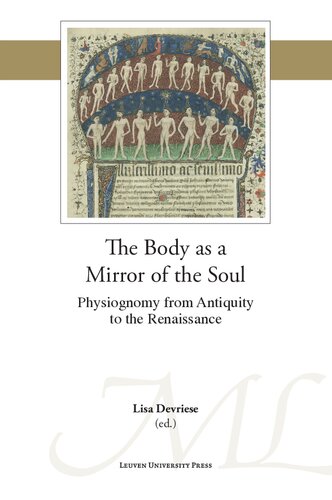

Most ebook files are in PDF format, so you can easily read them using various software such as Foxit Reader or directly on the Google Chrome browser.
Some ebook files are released by publishers in other formats such as .awz, .mobi, .epub, .fb2, etc. You may need to install specific software to read these formats on mobile/PC, such as Calibre.
Please read the tutorial at this link: https://ebookbell.com/faq
We offer FREE conversion to the popular formats you request; however, this may take some time. Therefore, right after payment, please email us, and we will try to provide the service as quickly as possible.
For some exceptional file formats or broken links (if any), please refrain from opening any disputes. Instead, email us first, and we will try to assist within a maximum of 6 hours.
EbookBell Team

4.8
94 reviewsThe idea of the body as a mirror of the soul has fascinated mankind throughout history. Being able to see through an individual, and drawing conclusions on their character solely based on a selection of external features, is the subject of physiognomy, and has a long tradition running well into recent times. However, the pre-modern, especially medieval background of this discipline has remained underexplored. The selected case studies in this volume each contribute to a better understanding of the history of physiognomy from antiquity to the Renaissance, and offer discussions on unedited treatises and on the application, development, and reception of this field of knowledge, as well as on visual sources inspired by physiognomic theory.
Contributors: Enikő Békés (Hungarian Academy of Sciences), Joël Biard (University of Tours), Lisa Devriese (KU Leuven), Maria Fernanda Ferrini (University of Macerata), Christophe Grellard (École Pratique des Hautes Études), Luís Campos Ribeiro (University of Lisbon), Maria Michela Sassi (University of Pisa), Oleg Voskoboynikov (Higher School of Economics Moscow), Steven J. Williams (New Mexico Highlands University), Joseph Ziegler (University of Haifa), Gabriella Zuccolin (University of Pavia)